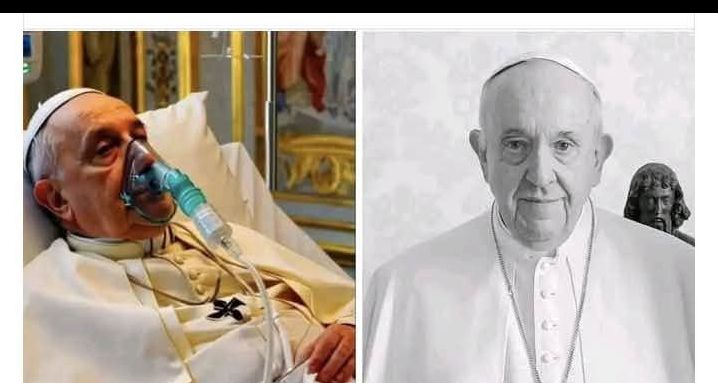Dear Brothers and Sisters,
Once again, the Lord grants us a precious opportunity to prepare our hearts for the celebration of the great mystery of Jesus’ death and resurrection—the cornerstone of our personal and communal Christian lives. We must continually return to this mystery, in mind and heart, for it will grow within us as we open ourselves to its transformative power and respond with freedom and generosity.
1. The Paschal Mystery as the Foundation of Conversion
Christian joy springs from hearing and accepting the Good News of Jesus’ death and resurrection. This kerygma encapsulates a love “so real, so true, so concrete, that it invites us into a relationship of openness and fruitful dialogue” (Christus Vivit, 117). Believing this message means rejecting the lie that life is ours to control as we please. Life is born from the love of God our Father, who desires to grant us life in abundance (cf. Jn 10:10). When we instead listen to the voice of the “father of lies” (Jn 8:44), we risk sinking into absurdity, experiencing hell on earth, as tragic human events too often show.
In this Lenten season, I wish to share with every Christian what I wrote to young people in Christus Vivit: “Keep your eyes fixed on the outstretched arms of Christ crucified, let yourself be saved over and over again. And when you go to confess your sins, believe firmly in his mercy, which frees you from your guilt. Contemplate his blood poured out with such great love, and let yourself be cleansed by it. In this way, you can be reborn ever anew” (No. 123). Jesus’ Pasch is not a past event. Through the Holy Spirit, it remains ever present, allowing us to see and touch the flesh of Christ in those who suffer.
2. The Urgency of Conversion
We are called to delve deeper into the paschal mystery through which God’s mercy has been lavished upon us. The experience of mercy is possible only in a personal, face-to-face relationship with the crucified and risen Lord, “who loved me and gave himself for me” (Gal 2:20), in a heartfelt dialogue between friends. That is why prayer is so vital in Lent. It is more than a duty; it is a response to God’s love, which always precedes and sustains us. Christians pray in the knowledge that, though unworthy, we are still loved. Prayer can take many forms, but what matters most is that it penetrates deeply into our hearts, softening them and leading us ever more fully toward God and His will.
In this season, may we allow ourselves to be led, like Israel in the desert (cf. Hos 2:14), so that we can hear our Spouse’s voice and let it resonate more deeply within us. The more fully we engage with His word, the more we will experience the mercy He freely offers. May we not waste this time of grace, clinging to the illusion that we can control the timing and means of our conversion to Him.
3. God’s Passionate Will to Dialogue with His Children
The fact that the Lord offers us yet another chance for conversion should never be taken for granted. This new opportunity should stir us to gratitude and rouse us from complacency. Despite the presence of evil in our lives and in the world, this chance to change direction reveals God’s unwavering will to maintain His dialogue of salvation with us. In the crucified Jesus—who knew no sin but became sin for our sake (cf. 2 Cor 5:21)—the Father took on the weight of our sins, in what Pope Benedict XVI called the “turning of God against Himself” (Deus Caritas Est, 12). For God also loves His enemies (cf. Mt 5:43-48).
The dialogue God seeks with each of us through the paschal mystery is not an exchange of empty words, as the ancient Athenians did, “spending their time in nothing except telling or hearing something new” (Acts 17:21). Such chatter—driven by superficial curiosity—marks worldliness in every era. In our own time, this can also manifest as the improper use of the media.
4. A Richness to Be Shared, Not Hoarded
Placing the paschal mystery at the center of our lives means feeling compassion for the wounds of the crucified Christ, present in the many innocent victims of war, attacks on life (from the unborn to the elderly), and various forms of violence. Christ’s wounds are visible in environmental disasters, the unequal distribution of the earth’s goods, human trafficking, and the insatiable thirst for profit, which is a form of idolatry.
Today, we are called to appeal to men and women of goodwill to share their resources with those most in need. Almsgiving allows us to personally contribute to building a better world. Charitable giving makes us more human, while hoarding risks imprisoning us in selfishness. But we must go further and also consider the structural aspects of our economic life. For this reason, from March 26 to 28, I have called a meeting in Assisi with young economists, entrepreneurs, and change-makers to discuss how we can shape a more just and inclusive economy. As the Church has often taught, political life is a significant form of charity (cf. Pius XI, Address to the Italian Federation of Catholic University Students, 18 December 1927), and the same is true for economic life, which should be guided by the evangelical spirit of the Beatitudes.
I ask Mary Most Holy to pray that our Lenten observance will open our hearts to hear God’s call to be reconciled to Him, to fix our gaze on the paschal mystery, and to enter into an open and sincere dialogue with Him. In this way, we will become what Christ calls His disciples to be: the salt of the earth and the light of the world (cf. Mt 5:13-14).
Francis



